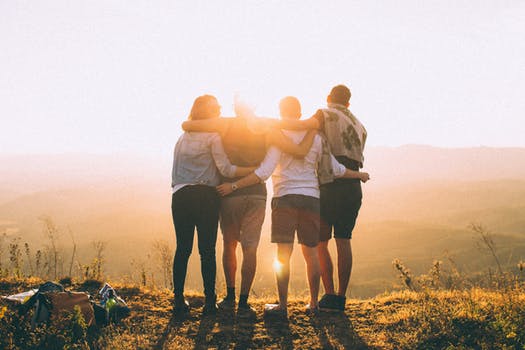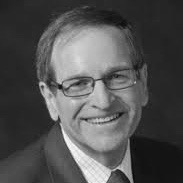 Photo by Pexels
Photo by Pexels
Amid the tragedies of the past few weeks that have engulfed us materially and spiritually, I remain amazed at the saving grace of human relationships. The heroism of the first responders to save the lives of complete strangers, even as they risk — and sometimes sacrifice — their own lives. The extraordinary outpouring of support for the Jewish people from other faith communities in the face of deadly anti-Semitism.
At the heart of these inspiring responses is the power of one-to-one relationships, what Jewish tradition calls bein adam l’chaveiro — the relationship between a person and a friend — the bedrock of community.
As we gather with family and friends to celebrate Thanksgiving this year, it is worth pausing from the feasting and the football to reinforce the essential value of personal relationships and to celebrate the clarion call of our nation’s Founding Fathers: E pluribus unum — “from the many, one.” We Jews know the importance of “one.” Echad (“One”) is often the first Hebrew word we learn — and it is the last word of our most important prayer. More on that in a moment.
We are a people who love to talk. You know the old jokes. Two Jews, three opinions. Schwartz goes to synagogue to talk with God; Greenberg goes to synagogue to talk to Schwartz. My worry is that there is so much divisiveness in our discourse that, in fact, people are not talking to one another — in our shuls, in our organizations, in our friendship groups, even, I fear, in our families. Some of us have decided to ban any talk of politics when we gather together. That’s one solution, I suppose. But isn’t there a way to disagree without being disagreeable? I believe there is, and it is to remember that most important prayer, the Shema.
“Shema, Yisra- El! Adonai Eloheinu? Adonai Echad!”
A loose translation: “Listen, you God-wrestlers! Our God? Our God is One!”
“As we gather with family and friends to celebrate Thanksgiving this year, it is worth pausing from the feasting and the football to reinforce the essential value of personal relationships.”
The key words are shema and echad — “listen” and “oneness.” May I suggest we use these imperatives as the ground rules for our family conversations. Stop talking and listen. Listen to the other, especially those who hold opposite views. Don’t interrupt. Don’t be aggressive or defensive. Just listen. When the other has said her/his piece, say your piece and insist on the same ground rules. Have a peace-full conversation. That’s the meaning of shema.
Then, remember echad. Not only is God One, we are One. That’s not just on old fundraising slogan; it is the fundamental value of monotheism, democracy and community. We need to protect our relationships with one another. There are far too many who would love to see us tear ourselves apart. Let’s not do it to one another.
We have so many blessings to be thankful for this Thanksgiving weekend — our loving families, our communities of belonging, our laden tables, our magnificent country. You can celebrate our gifts of freedom by checking out the “American Thanksgiving Seder” family celebration ritual the late Larry Neinstein and I initiated back in the ’90s, which was then fully realized by Lee Meyerhoff Hendler at freedomsfeast.us.
Here’s a radical idea: Share this column with those relatives and friends you find difficult to talk to these days, along with a sincere personal note giving thanks for your relationship with them, no matter what. Relationships are that precious.
Thanksgiving is a wonderful opportunity to reach across the table — and the aisle — to preserve the essence of our families, our friendships and our society committed to civility, the sacred relationships we share with one another.
Ron Wolfson is Fingerhut Professor of Education at American Jewish University and the author of “Relational Judaism.”























 More news and opinions than at a Shabbat dinner, right in your inbox.
More news and opinions than at a Shabbat dinner, right in your inbox.